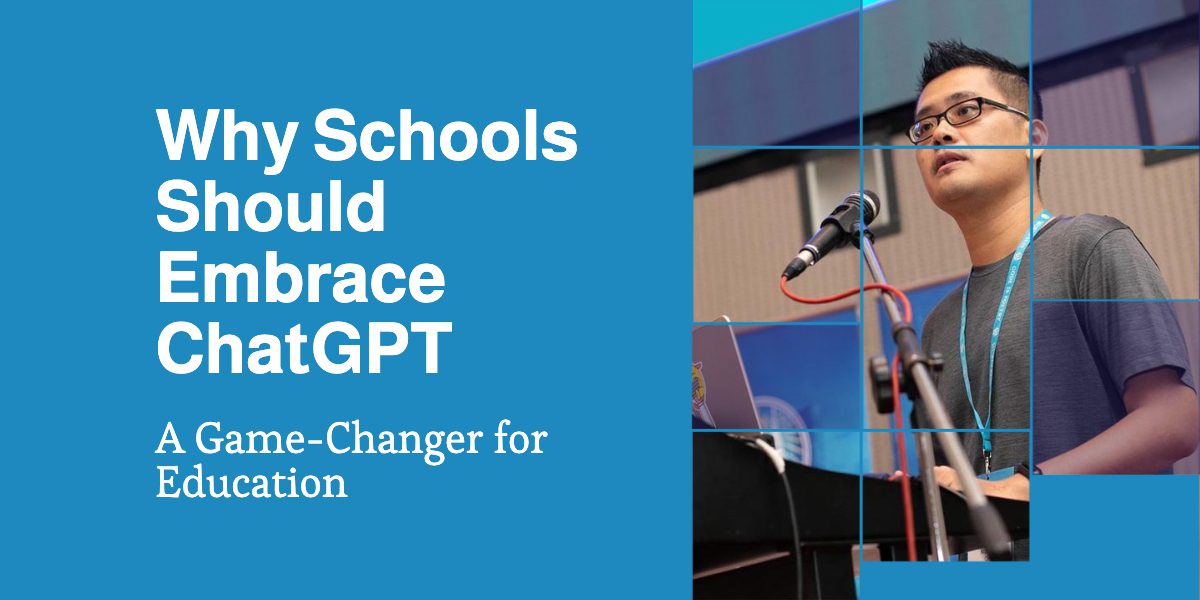A growing number of school districts are banning the artificial intelligence chatbot, ChatGPT, due to concerns about cheating. While these concerns are valid, there’s an argument to be made that embracing ChatGPT can have transformative effects on education. In this post, we’ll discuss the reasons behind the ban and explore the potential benefits of integrating ChatGPT into the classroom.
Schools are banning ChatGPT in an attempt to protect academic honesty and to ensure that students develop critical-thinking and problem-solving skills. Teachers and school officials worry about plagiarism, as students may use ChatGPT for assignments. Consequently, New York City’s Department of Education announced a ban on ChatGPT access on school devices.
However, enforcing this ban may prove ineffective. Students have phones, laptops, and other devices that allow them to access ChatGPT outside the classroom. As one educator put it, playing whack-a-mole against an ever-expanding army of AI chatbots is a losing battle.
Embracing ChatGPT: A New Approach to Learning
While OpenAI’s CEO, Sam Altman, has mentioned that the company is working on ways to identify ChatGPT plagiarism, he also acknowledges that creating perfect plagiarism detection tools is fundamentally impossible. As a result, he advises schools and policymakers to avoid over-reliance on these tools.
Instead of outright banning ChatGPT, schools could take a more balanced approach, treating it like calculators—allowing it for some assignments but not others. This would acknowledge that students will likely use the technology when unsupervised.
By embracing ChatGPT, educators can benefit from a powerful tool that can assist in creating engaging lesson plans, providing personalized feedback, and helping students explore new concepts. This technology can also foster a more interactive and dynamic learning environment, where students and teachers collaborate in the learning process.
The classroom experience can be vastly improved by embracing ChatGPT. It can facilitate a new way of learning, with students using AI to explore topics in-depth, instead of relying solely on textbooks. Generative AI has the potential to revolutionize education, transforming how students learn and teachers teach. Schools need to evolve and adapt to this new technology, just as they have done with other advancements in the past.
The Future of Education: ChatGPT’s Impact and Beyond
The current education system is antiquated, designed to prepare students for factory work rather than fostering problem-solving and critical-thinking skills. Embracing ChatGPT can help change the way schools function, better preparing students for the modern world.
ChatGPT can assist educators in streamlining administrative tasks, such as grading and providing feedback on assignments. This can save valuable time, allowing teachers to focus more on individual students’ needs and fine-tuning their teaching methods.
With class lectures readily available online, the value of attending college and university must be reevaluated. Embracing AI technologies, like ChatGPT, can help institutions rethink their role in providing education and determine their true value in the modern world.
ChatGPT can offer valuable support to students with diverse learning needs, such as those with learning disabilities or non-native English speakers. By providing personalized assistance, ChatGPT can help bridge the gap and promote inclusivity in the classroom.
Integrating ChatGPT into the classroom can help foster a culture of lifelong learning, encouraging students to develop essential skills like critical thinking, adaptability, and creativity. These skills will prove invaluable as students navigate an ever-changing job market and the challenges of the 21st century.
In conclusion, while concerns about cheating and academic honesty are valid, the benefits of incorporating ChatGPT into the education system far outweigh the potential drawbacks. By adopting a balanced approach, schools can harness the power of AI to enhance learning experiences, support students with diverse needs, and prepare them for the future. It’s time for schools, teachers, and policymakers to embrace AI technologies like ChatGPT and make a lasting impact on the future of education.

Leave a Reply